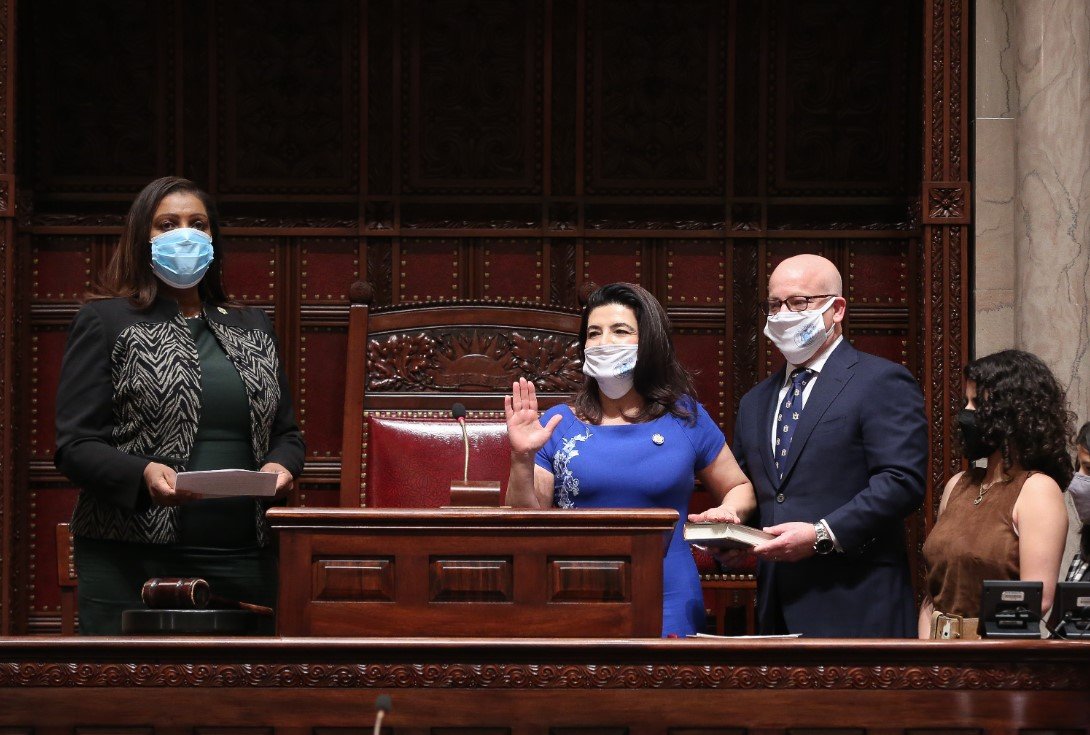In a landmark decision, New York Attorney General Letitia James has secured a $9.5 million judgment against George West, the owner of Jaydega 7.0 cannabis shop in Canandaigua. The ruling underscores the state’s stringent measures against unlicensed cannabis operations and sets a precedent for future enforcement actions.
Unlicensed Operations Lead to Massive Penalty
George West’s Jaydega 7.0 was found to be operating without the necessary licenses, violating New York’s cannabis regulations. Despite multiple notices to cease operations from the Office of Cannabis Management (OCM), West continued to sell cannabis products illegally.
- Total Judgment: $9.5 million
- Illegal Profits Repayment: $1 million
- Penalties for Continued Sales: $8.4 million
The OCM initially advised West in June 2023 to halt his unlicensed activities. However, months later, authorities shut down his business, seizing over 200 pounds of cannabis and related products. This persistent disregard for state laws led to the substantial financial penalties imposed by Attorney General James.

Legal Battle and Personal Impact
West has expressed his discontent with the court’s decision, stating that the case should not have progressed to this stage. The hefty judgment has significantly affected him, both financially and emotionally.
“I have no idea how they are going to pursue in collections, and I have no idea how the appeal is going to go, but I do hope the appeal will go well,” West commented. He also mentioned the stress and anxiety resulting from the legal proceedings, despite his efforts to remain positive throughout the process.
Breakdown of the Judgment
| Component | Amount |
|---|---|
| Illegal Profits Repayment | $1,000,000 |
| Penalties for Continued Sales | $8,400,000 |
| Total | $9,500,000 |
This table highlights the financial obligations West must meet following the court’s decision, emphasizing the severe consequences of operating without proper licensing.
Statewide Crackdown on Illegal Cannabis Sales
Since the legalization of adult-use cannabis in New York in 2021, the state has intensified efforts to eliminate illegal storefronts. Over 1,000 unlicensed cannabis businesses have been shut down, reflecting the state’s commitment to regulating the industry effectively.
Legal vs. Illegal Dispensaries
- Monroe County: 5 legal adult-use dispensaries
- Ontario County: 3 legal adult-use dispensaries
- Wayne County: 1 legal adult-use dispensary
These numbers illustrate the disparity between legal and illegal operations, with the majority of cannabis sales now confined to properly licensed establishments. The state’s proactive stance aims to protect consumers and ensure that only compliant businesses thrive in the legal market.
Attorney General’s Statement on the Judgment
Letitia James emphasized the importance of adhering to state regulations to maintain a safe and lawful cannabis market. “They just want to go after as much money and as much time as they can get,” James remarked, highlighting the necessity of strict enforcement to deter illegal activities.
Implications for the Cannabis Industry
The $9.5 million judgment against West serves as a stark warning to other cannabis businesses operating without licenses. It underscores the significant financial risks associated with non-compliance and the state’s unwavering commitment to enforcing cannabis laws.
Future of Unlicensed Cannabis Operations
- Increased Scrutiny: Ongoing investigations will likely target more unlicensed businesses.
- Higher Penalties: Financial repercussions for non-compliance are set to rise.
- Enhanced Regulation: Stricter guidelines to ensure all cannabis operations are properly licensed.
These measures are expected to further legitimize the legal cannabis market while curbing the prevalence of illegal sales, ultimately benefiting both consumers and compliant businesses.
Community and Economic Impact
The crackdown on illegal cannabis sales not only reinforces legal standards but also impacts the local economy. By shutting down unlicensed operations, the state ensures that tax revenues are properly collected and reinvested into community services and public health initiatives.
West’s case also highlights the personal toll of legal battles, bringing attention to the need for support systems for business owners navigating the complexities of cannabis regulations.
Michael Brown is a seasoned journalist with a knack for uncovering compelling stories within the realm of cannabis. Through his investigative reporting and in-depth analysis, he sheds light on the regulatory challenges, market trends, and societal impacts of the burgeoning cannabis industry. Michael’s commitment to objective journalism and ethical reporting makes him a trusted voice in providing readers with balanced and informative articles about this rapidly evolving landscape.








